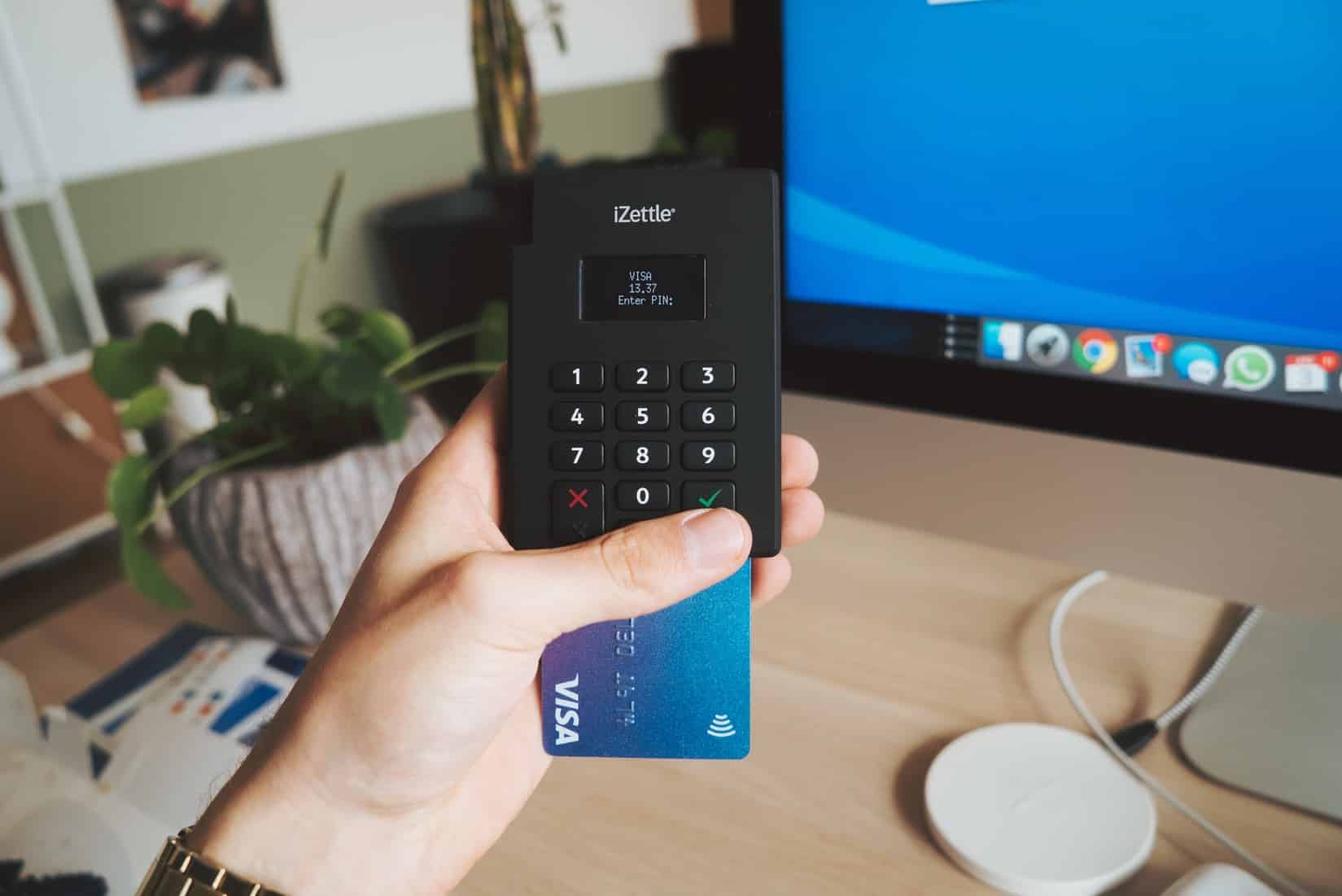Have you been MATCH’d?
If so, then you’ve been placed on a Member Alert to Control High-Risk as a business owner.
One of the most common reasons your merchant account will be put on a MATCH list (also known as a terminated merchant file list, or TMF) is because of excessive chargebacks.
Being on the TMF list can make it much harder to run your business because being a high risk merchant account can make it more difficult when it comes to getting credit card processor privileges.
As such, it’s important to understand if your merchant account is on a TMF or MATCH list, since it’s one of the worst things that can happen to you, particularly if you’re an online business.


What is the MATCH or TMF List?
MATCH — Member-Alert-To-Control-High-Risk — or Terminated Merchant File (TMF) is a database of previously terminated merchants created and maintained by MasterCard Worldwide, and relied upon by the payment brands to screen and regulate merchant access to the payments system.
It’s maintained by MasterCard, but Visa, Discover, American Express, and all financial institutions rely on it, which means that it’s important that you understand whether your merchant file is listed as a TMF merchant account in the first place or not.
This is a way for acquiring banks (aka merchant processing banks) to screen potential applicants to make sure that they’re not a high-risk merchant.
It’s important for acquiring banks to be able to control high-risk merchants since a history of high chargebacks or fraudulent transactions could be a sign of illegal activity. Different banks have different chargeback thresholds, so it’s important to look into the specific conditions that may lead to you being listed as a high risk merchant account. Acquiring banks also have the ability to add or remove merchants to or from the MATCH database.
What Do You Do If Your Business is on the MATCH List?
There are a variety of reasons why your merchant’s name could wind up on a TMF or MATCH list. Since it’s difficult to create a new account, you have a limited number of steps to take if you receive a red flag as an account holder. It may feel like the end of the world to show up on a match file, but if you know the reason code contributing to you becoming a TMF merchant account, that’s the first step in facing your issue. When your merchant account is terminated here are a few things you can do:
- Speak to your payment processor and find out why.
- Reach out to offshore merchant accounts & payment processors that specialize in high-risk merchants.
- Explain your situation, including why you’ve been placed on the MATCH/TMF lists.
- Provide the last 6 months of processing statements and any additional paperwork required.
- Plan to incorporate actionable changes in your business to avoid the MATCH/TMF lists again.
- Be patient. Underwriting takes time.
- Supply the processor with the information required during the underwriting process.
- Once approved, remain compliant and in good standing.
What Happens When You’re MATCH’d?
When a merchant is placed on the MATCH list, the business name, principal, and any business partners are all recorded on file and banned from opening any new merchant accounts elsewhere.
This means that it’s going to be incredibly difficult for you to uphold your financial obligations as a business, since it will be particularly difficult to find a processing bank and handling credit card payments.
Once on the MATCH for a violation of standards, it is extremely difficult to obtain a new merchant account.


What is the process for getting off the MATCH list?
Acquirers who are searching the MATCH list can access information that is reported and stored during the previous five years. Any merchant added during that time will generate a MATCH result.
After five years, the merchant’s data will be removed from the MATCH list, assuming no additional MATCH entries were made during that time frame. MasterCard will remove a merchant when the acquirer reports that it added the merchant in error.
Acquirers loath to take that step, however, because they face liability to subsequent acquirers for losses caused by any merchant they should have placed on—or improperly removed from—the MATCH list. It is no easy task to get off this list, but it can be accomplished through diligent advocacy in some cases.
The MATCH List removal process.
What Global Legal can do for you?
We can help with MATCH/TMF issues. If it’s time for you to come off of the MATCH file, it could be a relatively simple fix. Though there’s no guarantee of any specific outcome with any MATCH case, with Global in your corner, your chances of success are increased. As a merchant account provider with a MATCH file, Global Legal can give you the best way to address your MATCH placement and potentially get you back to your old shape and ready to handle credit cards again in no time at all.
We will need the information that you have on the original triggering event, including your agreement with the credit card company that put you on the list, any documents related to that, and any additional information that might be helpful. Whether you’ve been put on a blacklist because of fraudulent activity, identity theft, or a high volume of chargebacks, you’ll need to be able to show our team of experts any documents related to your former processor, any counterfeit charges, and other information about the principal owner.
From there we will facilitate working with the past processor to be removed from the MATCH file, no matter what type of business you are.
Global’s reputation often precedes itself. Global’s MATCH demand letters are often given great weight, earned through the representation of several financial institutions, acquirers, and other entities and organizations that operate in the electronic payments industry for over ten years. Global also works heavily in the compliance field, including advising businesses engaged in electronic payments and related products and services on the applicable laws, rules, and regulations, whether from a state or federal governmental organization or enforcement body; state and local laws, rules, regulations and ordinances; the Card Brand Rules; the rules, policies, and standards enforced by processors; the NACHA Rules; and the standard in the industry (collectively, the “Rules”).
Global’s founding partners, James C. Huber and Christopher R. Dryden, are widely recognized as expert attorneys in the electronic payments industry. Further, Mr. Huber and Mr. Dryden sit on the board of multiple organizations engaged in the electronic payment processing industry. Global’s attorneys’ vast experience and exemplary performance in ensuring sales organizations, processors, banks, software providers, technology companies, resellers, and other financial institutions’ compliance with the ever-changing regulation of the electronic payments industry complements its ability it to navigate the rapidly-evolving legal landscape related to merchants engaged in the business of providing or related to non-traditional or high-risk products and services.
Our clients, and advisory boards alike, have come to place a tremendous amount of confidence in Global’s expert opinions on electronic payments companies and their practices. Thus, a similarly high degree of trust in our assurances is warranted in this instance.
Industry driven, relationship-focused.
We know how hard it can be to find a new merchant service provider or new processor if your previous merchant service provider has dinged you for excessive fraud or chargebacks. That’s why we leverage our relationships with cardholders, underwriters, and business accounts to get out from under the weight of the red flag your former provider has placed on your business account. We take customer service seriously, and take pride in helping businesses avoid insolvency and address any illegal transactions or suspicious activity that may have triggered a MasterCard alert and gotten your business listed as a TMF merchant.
We’ve worked with a variety of potential merchants and credit card associations, and we’re certain that we have the right person for the job. The only way to address these sorts of issues is to look into the accuracy of any information and address the card association itself, an application process we’re comfortable and confident navigating. Contact us today for a free consultation to discuss how Global might assist you with your MATCH/TMF issues. The only thing you’ll have to do is give us the information and documentation from your previous processor and we’ll do the rest!

